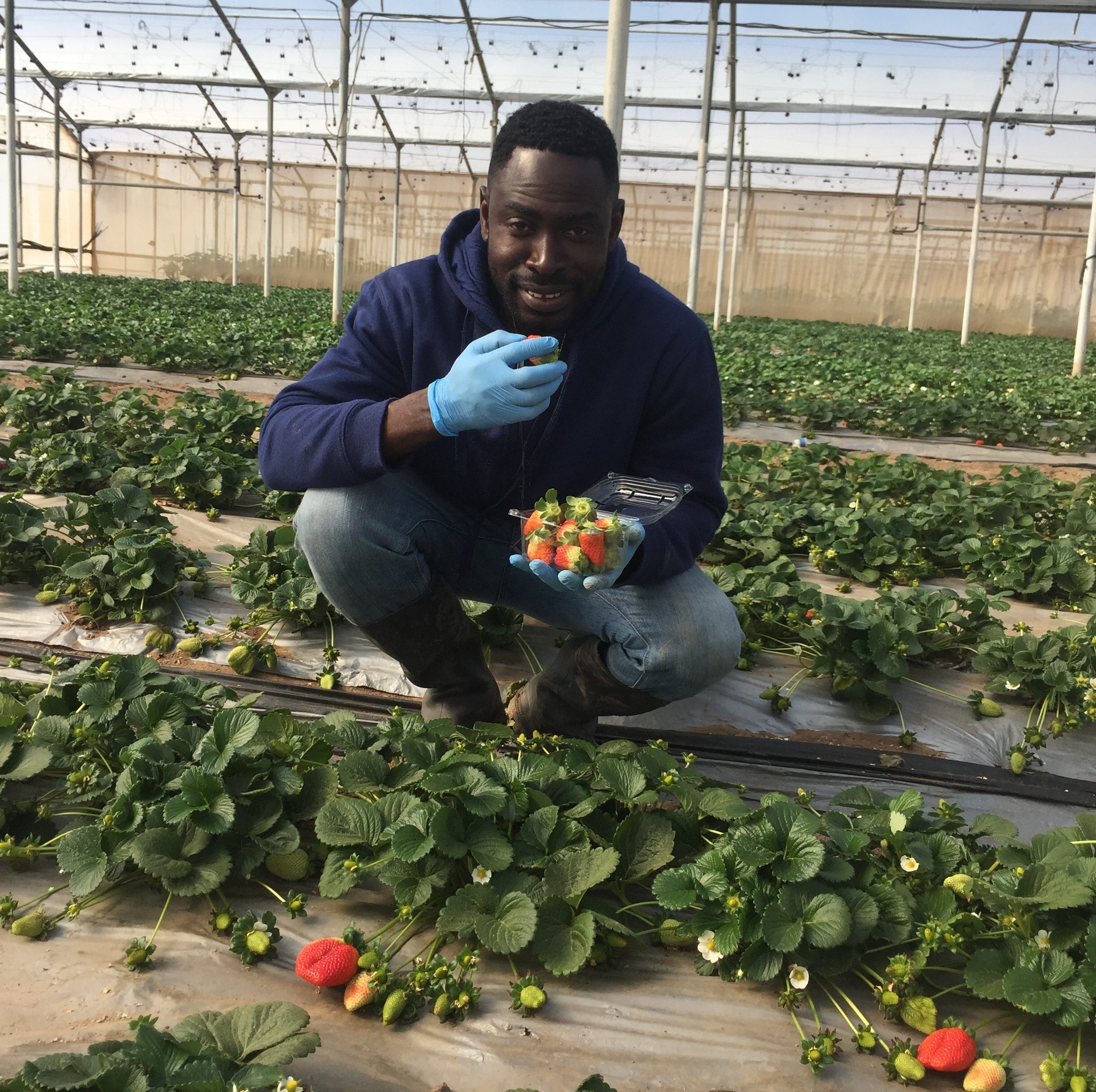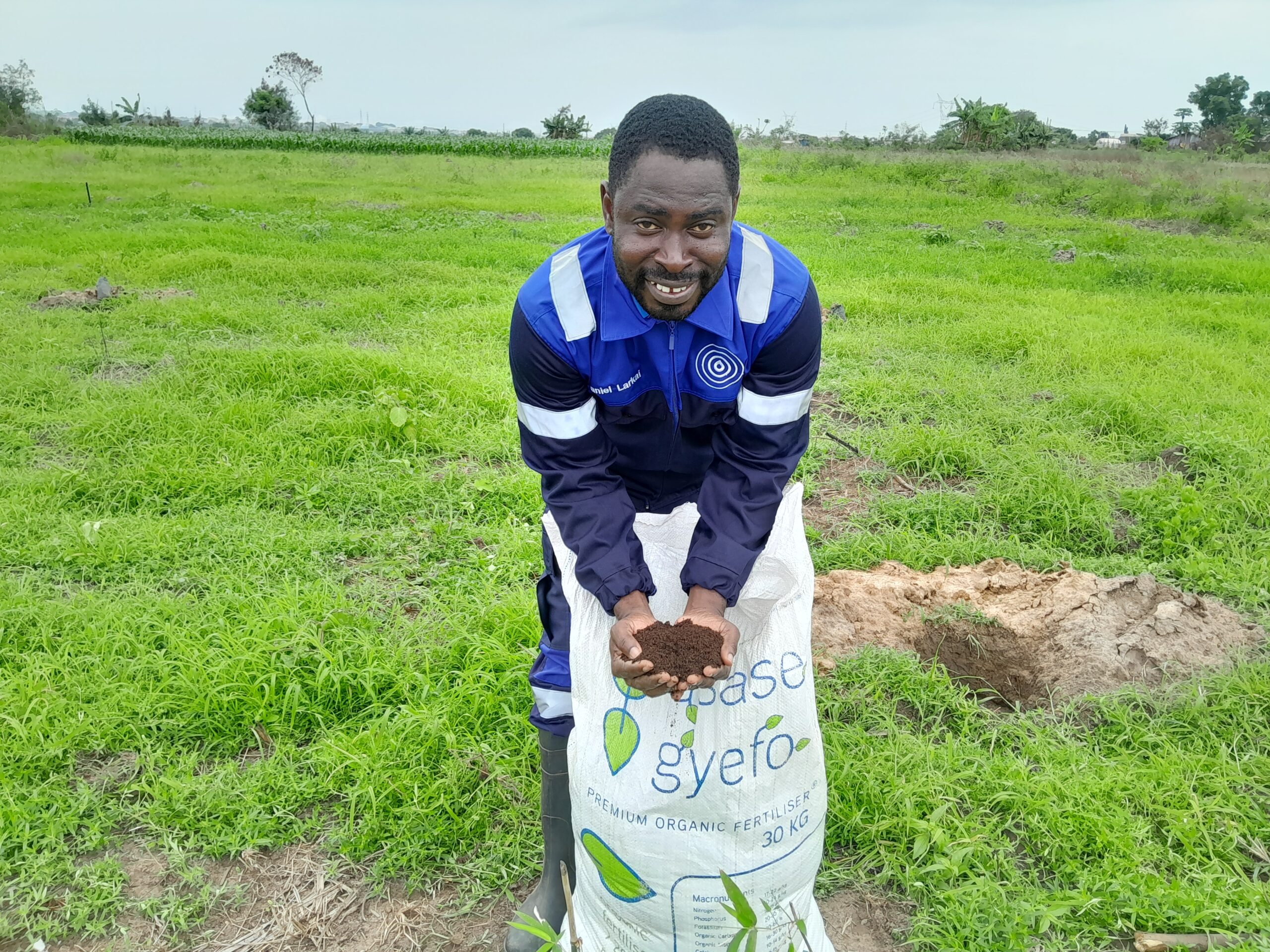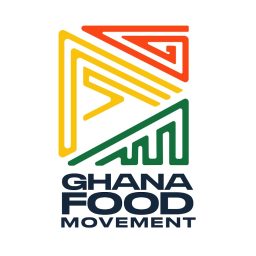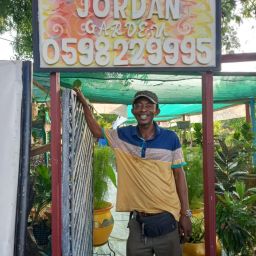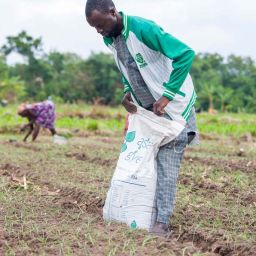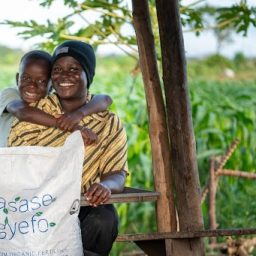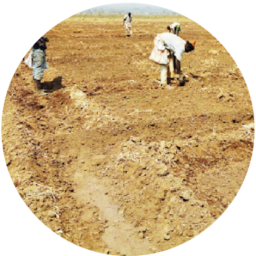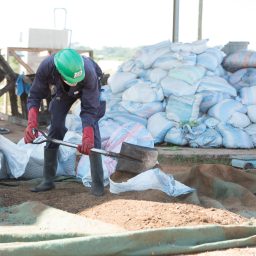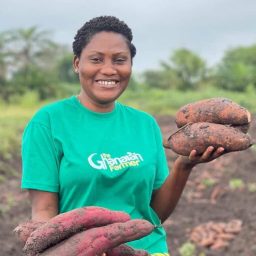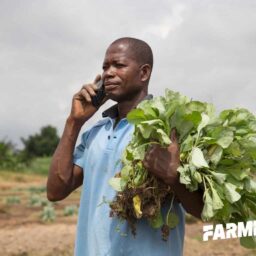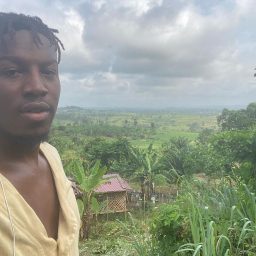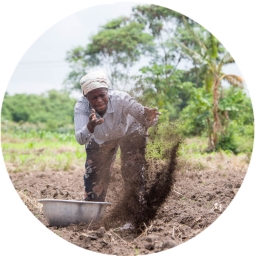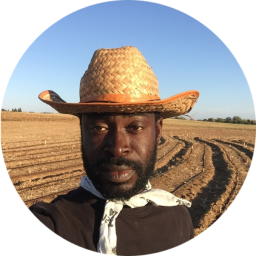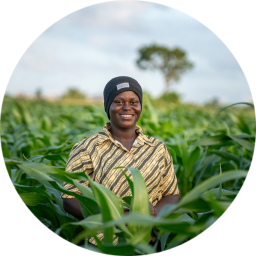In this article, we would like to introduce you to Daniel Larkai, also known as the Eden Agronomist on Facebook, and most importantly, Safisana’s seasoned Senior Agronomist. Daniel Larkai is 38 years old and specializes in optimizing crop production and fertilizer quality through soil science and sustainable practices. Daniel will also feature Asase Gyefo’s news page once a month with the Asase Gyefo – Love Your land blog series, in which he share insights on sustainable farming facts and excellence in organic fertilizer for farmers and curious-minded.
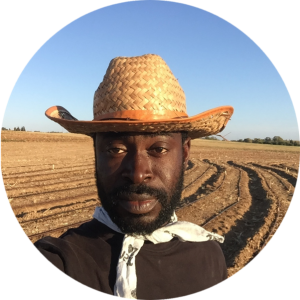
Can you introduce yourself, and talk about your background and expertise as an agronomist?
“My name is Daniel Larkai, I was born and raised in Accra. Therefore, I did not grow up in a farm, neither of my parents were farmers,. Yet I took a great interest in agriculture and the science behind it. When I was 15 years old, I remember telling my teacher that I wanted to become a researcher in agronomy. Even though at that time I did not know much about the topic. I was intrigued by the fact that Africa’s crop production is relatively low, especially compared to other continents. That motivated me to learn more about soil health, its science and educate myself on techniques to increase crop yield production.
After my secondary education, I completed my undergraduate in Agricultural Technology with a specialization in the agronomy field at The University for Development Studies in the Northern part of Ghana, where they indeed do a lot of farming. After my degree, I completed my national service at the Cocoa Research Institute. Their role is to research into production problems of cocoa, coffee, kola, shea and cashew and to contribute effectively to the fulfilment of COCOBOD’s vision to increase productivity at the farmer level. During this service, I worked on data collection, fertilizer application, pollination of cocoa flowers, and disease and pest control in experimental plots. From then, I began my career as an agronomist, starting in the eastern region working at a pineapple farm.
Currently, while working at Safisana, I am studying my Master of Philosophy in Soil Science at the University of Ghana. This study is about soil chemistry and fertility. Soil is the prominent and fundamental factor in optimal plant growth. Yet, most farmers forget about the most important part of growing crops, soil testing! Without testing your soil, you cannot determine what components are lacking for fruitful soil. You need healthy soil, to guarantee crop yield! The study also goes hand in hand with my job at Safisana. I get to improve my knowledge and skills on how to effectively use our Asase Gyefo Organic Fertilizer to increase crop yield.”
After your education, you became an expert in the field of agronomy. Did you have any other agronomic experiences besides academics?
“Yes, I did, the most important turning point in my development as an agronomist was my participation in Agrostudies in Israel. I was among the first 50 Ghanaian agronomists to participate in the 1-year internship training, in 2018-19. This agronomy training gave me a lot of confidence in myself in the field. I came in as a student, so I was there to learn. However, the owner of the farm put me in the position to make decisions as the agronomist in the area of irrigation and fertilizer application. This international experience has enabled me to grow tremendously as an agronomist.
I would call myself an expert in the field now, although there is always more to learn. In my home I have a research field where I used to try different fertilizers (bought ones and self-made ones) to experiment and find out what works best. I learned the most from these try-outs.”
On Facebook you are known as the Eden Agronomist, could you elaborate on the mission behind your online presence?
“The Eden Agronomist videos on Facebook were born out of my dedication to inspire and engage both farmers and consumers on sustainable farming practices. With the Eden Agronomist, I strive to share knowledge with farmers on sustainable farming. Generally in Ghana, the level of sustainable farming is very low. The expertise among farmers in the application of fertilizer and manure is also not at best. I can tell that most food in the market is contaminated. However this could easily be solved if farmers would receive the right education. My motto is “grow healthy, eat healthy, and live healthy”. This not only applies to farmers but to consumers as well. Regarding the growing aspects, I encourage farmers to farm sustainably. Eating and living healthy is where I speak to consumers as well.
With my videos, I strive to share knowledge and resources to cultivate healthy soils, and increase crop yields, and sustainable habits. The response has been very positive. Especially after my video that I did with The Ghanaian Farmer, a popular TV and YouTube channel. We made a video about lettuce farming and drip irrigation. I received a lot of calls from different people across the globe from interested people who wanted to know more. That video has exposed me and I hope to continue inspiring others with my videos.”
As a Senior Agronomist at Safisana, you play an important role in soil, and organic fertilizer science. Could you share some of the key activities and projects you are involved in?
“At Safisana, we produce organic fertilizer with treated and processed organic and fecal waste. I oversee research projects to optimize our fertilizer usage, conduct field trials to demonstrate the efficacy of our products, and provide farmers with the tools and knowledge they need to pursue sustainable farming practices. Working with farmers is all about first-hand experiences. They need to see the beneficial effects of organic fertilizer on their soil. By advocating for soil fertility management, I address the issue of soil degradation and the lack of organic matter in the soil in Africa. Asase Gyefo Organic Fertilizer maintains all the necessary components that soil needs to provide sustainable and high crop yield. In fact, my research and field trials have proven that Asase Gyefo results in 20% more crop yield.
From this month starting, I will be publishing blog posts for the Sustainable Farming Communities series, here I will touch on a wider area of crop production topics. I will share different findings from researchers and myself that I believe are beneficial for the agricultural sector to know. However, I may also write about our trials and findings at Safisana and the effects of our Asase Gyefo Organic Fertilizer. The main idea behind these blog series is to share knowledge on sustainable farming.”
From your perspective as an expert in the field, what are the biggest challenges that small-scale farmers deal with in Ghana currently?
“Finance! The biggest challenge farmers face is the lack of financial resources. Small-scale farmers grow maize without applying fertilizers, which results in many negative consequences. Without the application of fertilizer, the crop yield becomes significantly lower. Which results in a lower income. A lower income for farmers affects their adaptation to technology because they can not afford it. Therefore almost all farmers in Ghana still farm by old methods, doing everything by hand which affects productivity. This is where a circular paradox arises. Lower productivity means lower income and therefore limitation purchase fertilizers or farming machines to increase crop yields and income.
This circular paradox also affects the challenge of food security in our country. The government should do a better job of subsidizing and formulating policies to support farmers and encourage youth to start farming. If farming in Ghana were more mechanized, like in Europe, the youth would be more appealed to start farming. Moreover, it would then become a great investment to start farming. We just need the right government support, education, and training about farming.”
Where do you want to be in ten years and what do you hope farmers in Ghana will have achieved by then?
“Good question, for myself I hope to become a well-knowledgeable expert in the field of agronomy, to the level where I can impact farming in Ghana and even beyond. I hope by that time, farmers in Ghana have made a significant transformation in their system of production, be it in the area of technology or finance. I want to see farmers live a happy life with a thriving economy for themselves.”
Read Daniel Larkai’s first Sustainable Farming Community blog post on Cocopeat mix here.


